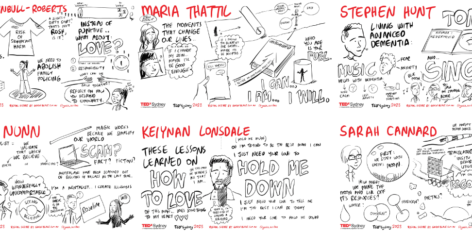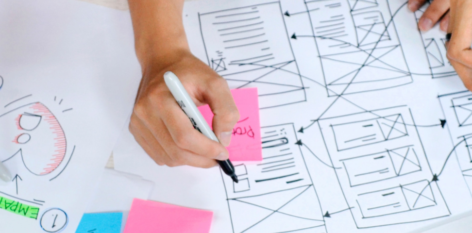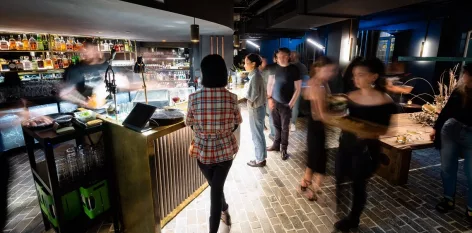In the vast tapestry of human history, there are pivotal moments that redefine our future, forever altering the course of our civilisation. These moments, known as tipping points, represent the confluence of events and ideas that ignite transformative change.
As we stand at the precipice of a new era, one characterised by rapid technological advancements, we find ourselves on the cusp of a tipping point that promises to revolutionise the way we live, work, and connect with one another.
The theme of TEDxSydney’s Tipping Point event aptly captures the spirit of this pivotal moment. It invites us to ponder the critical questions: What will send us tipping over into the creation of a new world? How can we harness the power of technology to reimagine our cities, evolve our political systems, protect our health, and construct economic models that align with the needs of a new era? In exploring these questions, we can uncover the immense potential of technology as a force for good in transforming lives and communities.
Technology as an Agent of Positive Change:
Technology has long been viewed as a double-edged sword, capable of both propelling progress and exacerbating societal issues. However, we are now witnessing a shift in perception as the world recognizes the tremendous potential of technology to address pressing global challenges. From artificial intelligence and machine learning to blockchain and renewable energy, technology is transforming the way we tackle poverty, inequality, environmental degradation, and healthcare disparities.
Reimagining Our Cities:
As our cities continue to expand and grapple with issues such as overpopulation, pollution, and inadequate infrastructure, technology emerges as a powerful tool for urban transformation. Smart cities are leveraging data-driven insights and Internet of Things (IoT) technologies to enhance efficiency, sustainability, and livability. From intelligent transportation systems that reduce congestion and emissions to smart grids that optimise energy consumption, technology enables us to reimagine our cities as vibrant, interconnected hubs that prioritise the well-being of their inhabitants.
Evolving How We Work:
The traditional notion of work is being upended by the rapid advancements in technology. Automation, robotics, and artificial intelligence are reshaping industries and redefining the nature of jobs. While this transformation brings apprehensions about job displacement, it also presents opportunities for creative adaptation. Technology allows for remote work, flexible schedules, and freelancing, empowering individuals to find new ways of engaging with the workforce. Additionally, it enables collaboration across borders, fostering global networks that transcend physical boundaries.
Redefining Politics and Governance:
The digital revolution has unleashed a new wave of civic engagement and participatory democracy. Technology is redefining the relationship between citizens and governments, enabling transparent decision-making processes, empowering marginalised communities, and fostering inclusive political systems. From e-governance platforms that streamline administrative procedures to social media platforms that amplify citizen voices, technology has the potential to reshape politics for the better, making it more accessible, accountable, and responsive to the needs of the people.
Protecting Health and Well-being:
In an era marked by the global COVID-19 pandemic, the role of technology in safeguarding public health has become more evident than ever. From contact tracing apps to telemedicine and virtual reality-based therapies, technology has played a critical role in mitigating the impact of the pandemic and improving healthcare outcomes. The integration of big data, machine learning, and wearable devices enables early detection of diseases, personalised treatments, and the democratisation of healthcare, ensuring that underserved communities receive equitable access to quality services.
Constructing an Inclusive and Sustainable Economy:
The current economic systems face numerous challenges, including wealth inequality, environmental degradation, and the automation-driven disruption of labor markets. Technology presents an opportunity to construct an economy that is inclusive, sustainable, and resilient. Renewable energy technologies can address climate change while creating jobs, and blockchain-based systems can ensure fair and transparent transactions. Furthermore, emerging concepts like the circular economy and impact investing leverage technology to promote resource efficiency and social responsibility, paving the way for a more equitable and environmentally conscious economic paradigm.
As we approach the tipping point of a new era, technology stands as a powerful catalyst for positive change. Through its transformative potential, we can reimagine our cities, evolve our political systems, protect our health, and construct economic models that foster inclusivity and sustainability. The TEDxSydney event, with its theme of Tipping Point, serves as a platform to explore these possibilities and inspire individuals to embrace technology as a force for good. By leveraging technology’s potential in a responsible and ethical manner, we can usher in a new world—a world that is more connected, equitable, and harmonious.






